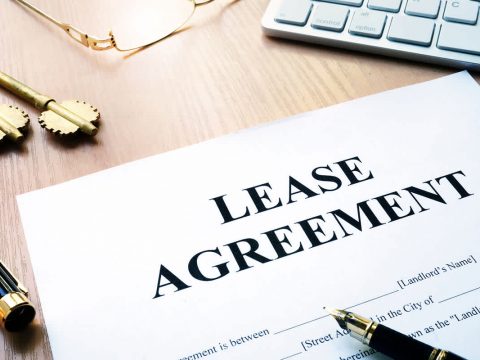- Have any questions?
- (850) 713-4866
- info@shorefrontrestorations.com
Making Use of an Unused Property as a Newlywed and Getting Out of the House in a Divorce

Leaving the Accidental Landlord Life
February 1, 2021
Mooching Relatives Living in Your House Without Paying?
February 1, 2021New situations in life may force us to leave things behind. Thinking that our lives would go one way, we sometimes end up running in the opposite direction. Some of you here might have thought you’d be single forever but are now close to their upcoming wedding. On the other hand, unfortunately (or fortunately, depending on how you look at it), others discover that the bliss of their married life had an expiry date, as they file for a divorce.
Before we go into a topic that’s not our expertise, we want to steer the conversation away from strong feelings to the material world. A “joining” or “separating” isn’t only about the people but would likely include possessions. Clothes and furniture may come inside your new home, but not the apartment you bought years ago! Is the new home even “yours” to begin with?
There’s an endless amount of concerns one might have, but here are some questions we aim to answer:
(1) If one owns a property and decides to move into their spouse’s estate, what do they do with their unused property? If the spouse moves in with them, what does the other spouse do with their house?
(2) If neither of the spouses owns a property, but decide to acquire one during the marriage, what happens to it when a divorce comes along?
The Newlywed Hack for Houses Not in Use
Depending on your circumstances, the extra property can either be beneficial or detrimental. Separate property in another state could mean that you have a vacation house for whenever you come to visit, an inheritance for your kids, or a potential retirement residence (if it’s in a retirement-friendly location).
However, an additional property means more financial liability. In addition to maintenance costs and paying for utilities, you have to keep up with property taxes and insurance. Additionally, an uninhabited home gives you the risk of thieves paying a visit or even squatters settling in! What do you do, then?
The Best Gift for Your Newlywed Life!
What would you do with a few thousand dollars? Selling an idle property can bring those ideas into reality within a few months, weeks, or even days!
If you’re not familiar with the selling process, we recommend that you work with a trusted real estate agent to get you started. You may have to spend a little extra on refurbishing the house or renovations, but after a few home visits within a couple of weeks or months, you’re good to go!
However, things might not go as planned if no one buys the property. In that case, or if you want to skip the wait altogether, contacting real estate investors may be your best bet. Because they’re already in the business of buying properties, you could get paid in a relatively short amount of time rather than waiting for a potential buyer. You don’t even need to hire an agent nor spend on repairs and renovation!
On the occasion that you don’t have time to look around for reputable real estate investors in your area, you give us, Shorefront Investments, a try! It’s just a matter of calling or sending us a message, and we’ll be with you as soon as possible. With our expertise and reputation, you can be sure that you’d be getting competitive offers.
Whether it’s a luxurious vacation, a new car, or a business investment, getting the proceeds of a house sale could become the best wedding gift you could ever get!
A Potential Foundation for the Future
For newlyweds, it may be a good idea to create a stable source of income by being a landlord. This does bring in a new set of responsibilities, in addition to your adjustment period in marriage, but it may be well worth the cost. While this isn’t the case for some people, it’s worth looking into. We’ve written why people regret being a landlord, and how one could avoid the same fate by setting up a well-oiled system.
Who knows, with the money you earn, you may end up buying more properties to rent!
However, what if you need to get a way out of your current residence?
Getting a Divorce and Getting Out
It’s essential to understand the specifics of marital properties when you’re dealing with serious issues like divorce. You might face significant problems with fraud if you don’t equip yourself with the right information.
The Fine Line Between State Lines
Without diving too deep into the subject, the main principle with marital properties is that the name on the deed is the owner. While that sounds like common sense, your state’s governing laws may make the situation complicated when it comes to owning properties within the marriage.
The common law property system dictates that any individual in the marriage may solely own anything within the marriage, and “joint” ownerships are possible provided that the property acquired is put under both names. However, the community property system says that anything acquired during the marriage is always owned together (income and debt included).
Common law property applies to almost all states except for Arizona, California, Idaho, Louisiana, Nevada, New Mexico, Texas, Washington, and Wisconsin, all of which follow the community property system. Those in Alaska or Tennessee go with common law but opens up residents to an opt-in possibility for a community property arrangement.
Decide and Divide
How you split with the “joint” property, or properties (if there are more than one), depends on your agreement with the other party. If you aren’t able to agree on who stays in the house, or if you can’t agree to live together while divorced, a probable easy solution would be to sell the house and divide the proceeds accordingly. Because having a divorce could get stressful, it might make sense to choose the quickest path to getting a sale. As mentioned earlier, getting a real estate investor to buy the property off of your hands instead may easily and quickly take one thing off the list of things to linger in your mind.
If you aren’t able to have a settled arrangement, you could let the court decide. They may look at other factors to come up with what’s equitable for each person rather than splitting a figure in half. Others might remain living in the house while the other gets compensated with a comparable amount of money to their “share” of the property.
Disclaimer: The information provided in this article is for informational purposes only and not intended to be taken as legal advice. Legal issues can get convoluted, especially if children or physical abuse claims are involved. Please seek professional assistance from an attorney that specializes in divorce to help you make your next move. For any other real estate concerns, contact Shorefront Investments.




